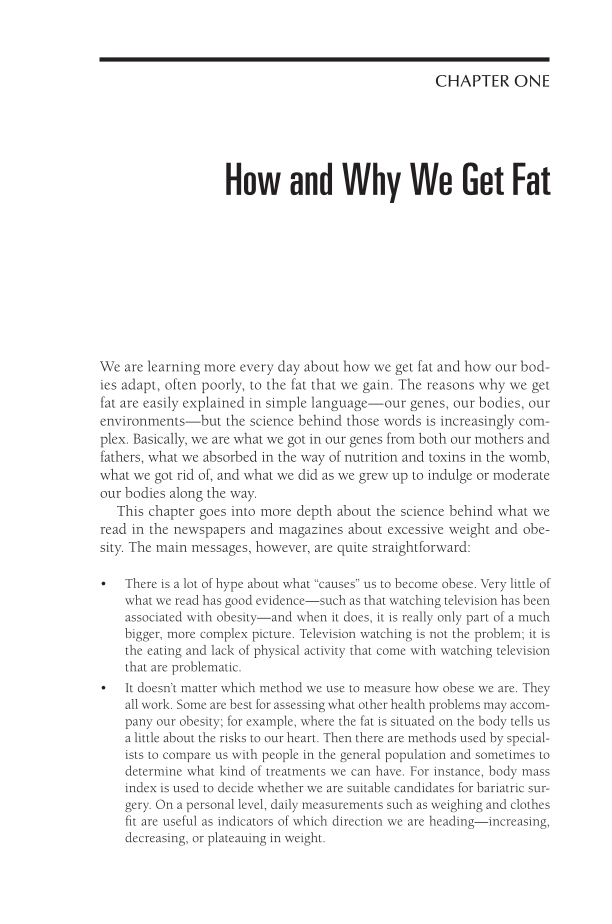CHAPTER ONE How and Why We Get Fat We are learning more every day about how we get fat and how our bod- ies adapt, often poorly, to the fat that we gain. The reasons why we get fat are easily explained in simple language—our genes, our bodies, our environments—but the science behind those words is increasingly com- plex. Basically, we are what we got in our genes from both our mothers and fathers, what we absorbed in the way of nutrition and toxins in the womb, what we got rid of, and what we did as we grew up to indulge or moderate our bodies along the way. This chapter goes into more depth about the science behind what we read in the newspapers and magazines about excessive weight and obe- sity. The main messages, however, are quite straightforward: • There is a lot of hype about what “causes” us to become obese. Very little of what we read has good evidence—such as that watching television has been associated with obesity—and when it does, it is really only part of a much bigger, more complex picture. Television watching is not the problem it is the eating and lack of physical activity that come with watching television that are problematic. • It doesn’t matter which method we use to measure how obese we are. They all work. Some are best for assessing what other health problems may accom- pany our obesity for example, where the fat is situated on the body tells us a little about the risks to our heart. Then there are methods used by special- ists to compare us with people in the general population and sometimes to determine what kind of treatments we can have. For instance, body mass index is used to decide whether we are suitable candidates for bariatric sur- gery. On a personal level, daily measurements such as weighing and clothes fit are useful as indicators of which direction we are heading—increasing, decreasing, or plateauing in weight.
Document Details My Account Print multiple pages
Print
You have printed 0 times in the last 24 hours.
Your print count will reset on at .
You may print 0 more time(s) before then.
You may print a maximum of 0 pages at a time.

































































































































































































